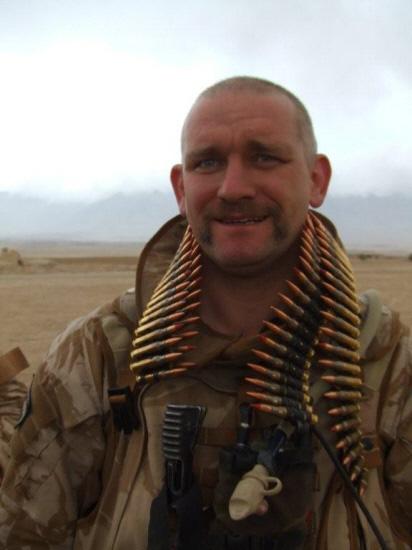
It’s always Memorial Day when the corporate machine wants applause for honouring sacrifice. When flags are flown, emails sent, press releases drafted by PR interns who’ve never worn a uniform or punched a clock. But behind the bunting and buzzwords, some stories don’t make the company newsletter.
In 2009, Cummins Inc. decided it was acceptable to lay off a Territorial Army soldier weeks after he returned from a combat tour in Afghanistan. His name was Simon Sunderland – a production operative at their Darlington plant, a father of four, a process man by trade, and a soldier by duty. When the recession hit, the company swung its axe hard – 440 jobs in Darlington, over 1,000 across the UK. Sunderland’s name made the list.
The legality was grey. The morality? Pitch black.
Sunderland didn’t go quietly. With the backing of Unite and Thompsons Solicitors, he challenged the decision under the Reserve Forces (Safeguard of Employment) Act 1985 – a statute designed to stop exactly this sort of betrayal. Cummins fought it. Sought legal advice. Consulted with SABRE, the government body meant to defend reservists. And then they did what they always do: denied wrongdoing.
Steve Nendick, their spokesman at the time, offered a statement wrapped in corporate varnish. “Tough decisions had to be made,” he said, “to safeguard the plant.” Sunderland, they claimed, had been treated like any other employee. As if that were the defence. As if a man returning from war should be grateful for equal footing with someone who spent the year behind a desk.
They insisted they didn’t fire him by email – because in Cummins-speak, dignity is apparently defined by the format of your dismissal.
It took a tribunal to drag the truth out and set it right. Sunderland was reinstated. Not because Cummins grew a conscience, but because a judge told them to. He walked back onto that factory floor with medals on his chest and a legal victory under his belt. And still, the company refused to admit they got it wrong.
“We welcome Simon back,” they said, dry as bone, promising he’d be treated well “in line with our strong company values.”
Values. There’s that word again. You see it in their branding, their annual reports, their HR presentations. You just don’t see it when it counts.
This isn’t ancient history. It’s a pattern. A glimpse into how Cummins views accountability – not as a principle, but as a PR problem. From emissions fraud settlements with no admissions of guilt to tribunal fights over the fair treatment of disabled workers, the playbook rarely changes. They stand by their actions. They insist it was all unavoidable. They say nothing, learn nothing, and move on.
Except people remember. Especially when those people were sent to the frontlines only to come home to a pink slip.
So this Memorial Day, when the LinkedIn posts go up and Cummins tags veterans in smiling group photos, remember Simon Sunderland. Remember that for all their pledges of support, this was a company that needed a court order to give a British soldier his job back.
No apology. No accountability. Just more paper over the cracks.
Lee Thompson
Founder – The Cummins Accountability Project
Sources
- The Northern Echo, “Engine maker defends TA soldier Simon Sunderland redundancy decision”, 4 November 2009
- Teesside Live, “Darlington TA soldier celebrates job victory”, date unknown
- Reserve Forces (Safeguard of Employment) Act 1985
- UAW, Unite, and Thompsons Solicitors public statements
